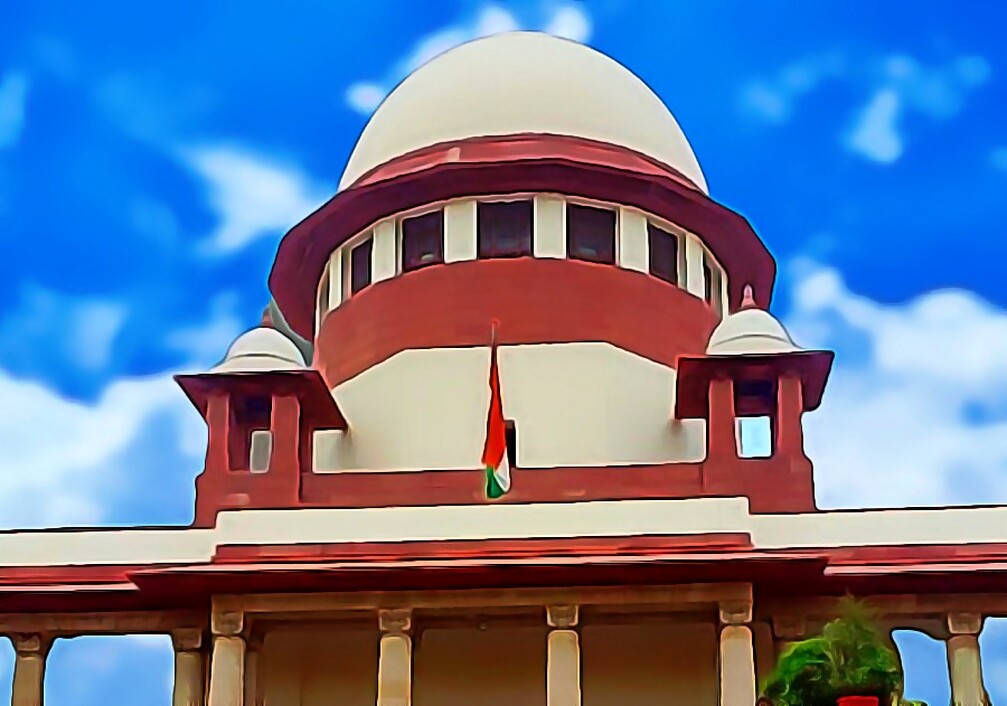In Civil Appeal No. 5049 of 2009 -SC- Supreme Court remits back property dispute case to MP High Court for fresh consideration; Criticizes High Court for inadequate evaluation of evidence
Justice Vikram Nath & Justice Rajesh Bindal [06-11-2023]

Read Order: Sabir Hussain (Dead) Thr. Lrs. and Ors V. Syed Mohammad Hassan (Dead) Thr. Lrs. and Anr
Chahat Varma
New Delhi, December 6, 2023: In a recent decision, the Supreme Court has set aside the judgment of the Madhya Pradesh High Court in a property dispute case and remitted the matter back to the High Court for a fresh consideration. The Court found that the High Court had failed to adequately consider all the evidence presented by the parties before reversing the judgment of the Trial Court.
The factual background of the case was that one Kallu Bhai had purchased the property in dispute from Amanat Ali in the name of Mohd. Jafar through a registered sale deed dated 03.04.1913, when Mohd. Jafar was three years old. Kallu Bhai, who had no children from his first wife (who pre-deceased him), died on 25.10.1952. Subsequently, on 27.08.1970, Bashirun Nisha, Kallu Bhai's second wife, also passed away. The defendant-respondent, Syed Mohd. Hasan, was 7-8 years old when his mother, Bashirun Nisha, died and was brought to live with Late Kallu Bhai. Late Mohd. Jafar was not in good health and on 05.11.1975, he entered into an agreement to sell the property in favour of Raza Hussain, which had been purchased by Late Kallu Bhai in his name in 1913. The sale deed was registered on 20.11.1975 in favour of Raza Hussain. Subsequently, on 17.01.1977, Raza Hussain filed a suit against Syed Mohd. Hasan, seeking restoration of possession of the property in dispute and claiming damages from 26.10.1976 onwards.
The Trial Court had decreed the suit. However, the Madhya Pradesh High Court, in the first appeal filed by Syed Mohd. Hasan, reversed the judgment and decree of the Trial Court.
The counsel for the appellants submitted that the well-reasoned judgment of the Trial Court had been reversed by the High Court in the first appeal without discussing the entire evidence on record, which it was duty-bound to do. Additionally, it was pointed out that in the written statement filed by the respondent-defendant, no plea of adverse possession was taken. It was argued that the agreement to sell and the sale deed were registered documents, and the genuineness thereof could not be doubted.
On the other hand, the counsel for the respondent-defendant submitted that the agreement to sell and the sale deed were registered within a period of fifteen days by Late Mohd. Jafar, despite his poor health at the time. It was asserted that Late Mohd. Jafar was never in possession of the property in question as it always remained with the predecessor-in-interest of the respondent-defendant, who had been living with Late Kallu Bhai after the death of his mother. Regarding the plea of adverse possession, the counsel argued that there was a specific plea raised as an additional plea in the written statement, to which no reply was given by the appellants. It was further contended that the respondent-defendant was never in possession of the property as a licensee, but rather in his own right, and that his possession was hostile to the knowledge of the owners who had sold the property. Consequently, it was suggested that as the owners had lost title in the property, the same could not have been passed on to the predecessor-in-interest of the appellants.
The division bench, comprising of Justice Vikram Nath and Justice Rajesh Bindal, took note of the opinion provided by the Handwriting Expert who examined three signatures on different documents, namely, sale deed, photocopy of sale deed, and agreement to purchase. The expert had concluded that the signatures on these documents were written by three different persons.
The bench also acknowledged the statement of Dr. Badrul Hasan Naqvi, who appeared as PW6. He was one of the witnesses of the sale deed dated 20.11.1975. According to his testimony, when the sale deed was registered, Mohd. Jafar was admitted to the hospital, and the Registrar came to the hospital to register the sale deed.
The bench pointed out that the High Court had viewed the sale deed with suspicion primarily due to differences in the signatures of the vendor on the agreement to sell and the sale deed. However, it failed to consider the evidence of the witness to the sale deed, who was present in the hospital when the Registrar registered the document.
The bench emphasized that the First Appellate Court is obligated to record comprehensive findings addressing all legal and factual issues and the evidence presented by the parties. The judgment of the First Appellate Court should demonstrate a conscious application of mind, and the findings should be substantiated by reasons covering all issues and contentions.
In the present case, the bench concluded that the High Court, acting as the First Appellate Court, failed to adequately reference and re-evaluate the evidence presented by the parties on various issues. Instead, the High Court had reversed the judgment and decree of the Trial Court without discussing the entire evidence in detail, which, according to the bench, was essential in such circumstances.
With the aforesaid observations, the bench decided to set aside the challenged judgment of the High Court. The case was remitted back to the High Court for a fresh consideration with a request for priority due to the matter being quite old.
Sign up for our weekly newsletter to stay up to date on our product, events featured blog, special offer and all of the exciting things that take place here at Legitquest.




Add a Comment